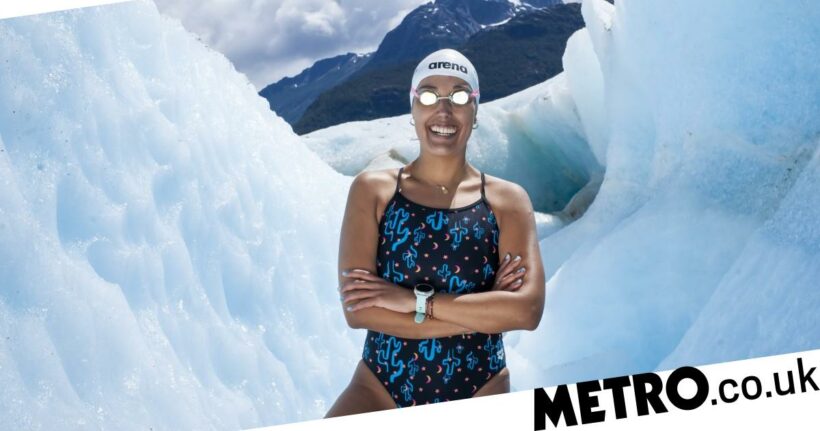For most people, even the idea of a cold shower is enough to make them shudder.
However, for extreme open water swimmer Bárbara Hernandez, taking to icy cold waters is not only her day job, but her life’s calling.
The 38-year-old, from Santiago, Chile, recently made history after being the first person to swim 2.5km in the biting 2°C waters of Antarctica, in February 2023.
If that wasn’t impressive enough, she did it all in just a swimming costume, a swim cap and goggles.
This is just the latest in a crazy set of challenges taken on by Bárbara as she attempts to break a number of world records – including being the first person to swim three nautical miles (5.5km) between the Pacific and Atlantic Oceans, and completing the first ocean mile in 15 minutes and three seconds.
Some of her gruelling and freezing swims take years of training – and her dedication to her craft has earned her the affectionate title of the ‘Chilean Ice Mermaid.’
Her recent record-breaking Antarctic swim, for example, involved three years of training – all for 45 minutes and 30 seconds of swimming.
‘I was very scared,’ Bárbara tells Metro.co.uk. ‘For me it was an impossible swim and my team were worried about hypothermia and my recovery.
‘When I did it, my internal body temperature was 27°C and the regular temperature is 36/37°C. So I was almost 10°C less than the normal person.
‘I was totally frozen really; my hands, my feet, everything.
‘My team were really worried, but they were in the boat next to me and the Chilean Navy was in the big boat, too – almost 60 people were cheering. They had that special Rocky song, The Eye of the Tiger, playing.
‘It was so nice and so beautiful – but it was freezing.’
However, it’s not just her mental resilience for the icy waters that’s admirable, but the fact she pushes through without a wetsuit or even protective grease – all because she loves the feeling on her skin.
‘A wetsuit is not for me,’ Bárbara says, ‘I love the feeling of the water and I love the cold. For me, it’s being a part of nature – so a wetsuit is not for swimmers.
‘The most difficult part is getting the permissions for the swims, as well as the training – as it’s hard to train for extreme conditions with long distance swims.’
Despite taking part in cold water swimming competitions in Chile since she was 17, Bárbara says – even 20 years on – the icy water is still a shock.
She adds: ‘I love the cold. I know for most people the cold is uncomfortable – but I love it. For me, the cold is fire – even when I swim in Antarctica my heart is on fire in the cold. I enjoy the conditions if I stay focused on my thoughts.
‘It’s very hard even now, 20 years later, so I have a special team, with my coach, my psychotherapist, my nutritionist and my special doctors. We work to avoid hypothermia and I am very responsible after the swim. I also work now with DryRobe to stay warm.
‘Before and after my swim I have to stay warm, but during it I am just in my swimsuit, swim hat and goggles in the water.
‘It’s perfect for me – even in Antarctica with very difficult and extreme conditions.
‘I am very happy in the cold and for the connection with nature.’
But why does she take on such punishing swims?
Ultimately, it all comes down to her passion for the planet
Bárbara wants her record-breaking swims to shine a light on climate change and what more needs to be done to protect the world’s oceans.
She continues: ‘I love the ocean, water, wildlife, the cold and the waves. I think it’s part of my heart. I belong in these places – from the glacier to the dark sea. This is my true purpose and sharing this with others is brilliant.
‘With my Antarctica swim, for example, it’s my opportunity to talk about climate change and the glaciers, and I also work with people who are preserving the beautiful sea and the wildlife.
‘It’s my way to show these places around the world and talk about preservation and conversation – it’s so important.’
And for those inspired to give cold water swimming a go, the Chilean Ice Mermaid has some top tips for taking to the water.
‘Start with just a few seconds, or minutes,’ she urges, ‘and take care with hypothermia and the recovery.
‘The after-swim is very important. In fact, it’s the most important thing: stay warm and have lots of warm liquids.
‘It’s a beautiful sport. I recommend for people to try it.’
Do you have a story to share?
Get in touch by emailing [email protected].
Source: Read Full Article


